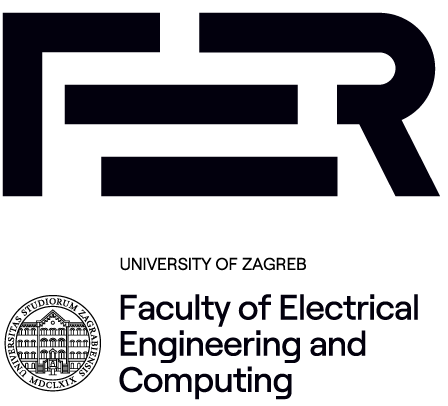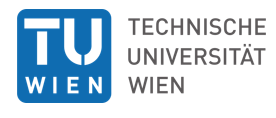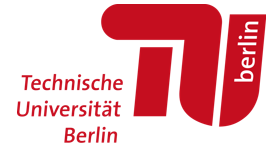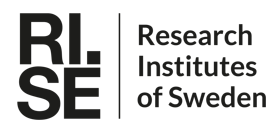University of Zagreb - Faculty of Electrical Engineering and Computing (UNIZG-FER)
- UNIZG-FER is the largest technical faculty of the University of Zagreb and leading educational and R&I institution in the fields of electrical engineering, information and communication technology and computing in Croatia. The current research and teaching staff includes about 200 professors and 230 teaching and research assistants and about 3,800 undergraduate and graduate students and 450 PhD students. Currently, UNIZG-FER participates in 64 international projects funded by various funding programs (HE – 1, H2020 - 19, Erasmus+ - 9, COST – 13, INTERREG - 4), as well as several bilateral and industrial projects with international companies. The number of international projects constantly makes UNIZG-FER one of the two most internationally active institutions in Croatia. The number of active projects funded by European Structural and Investment Funds is also high (ERDF – 66, ESF - 15). The Internet of Things Laboratory is a research laboratory established in 2015 at UNIZG-FER that focuses on research, innovation, and educational activities in the field of Internet of Things and Machine-to-Machine (M2M) communication. We are currently involved in three national reseach projects: two projects are funded by ERDF (IoT-Field and Pinova) and one project is funded by the Croatian Science Foundation (IoT4us).
Technische Universität Wien (TUW)
-
TUW is the leading technical university in Austria and one of the leading universities in the world in computer science (Top 50 in Times Higher Education Ranking 2017). The participating research group, the Distributed Systems Group (DSG), is a unit of the Institute of Information Systems Engineering at the Faculty of Informatics. DSG is led by Prof. Schahram Dustdar with around 30 research and support staff members, conducting teaching and research in distributed computing with emphasis on service-oriented computing, cloud/edge computing architectures, edge AI, Internet of Things, Smart Cities and Social Computing. Current and former members of DSG have been the forerunners in areas of Service Oriented Computing, Cloud and Edge Computing as well as Edge Intelligence. The group is consistently publishing its research results in high-impact journals and top-tier conferences. Recent contributions of the group focus on system support, runtime environments and algorithms for optimal edge-to-cloud DNN model serving.
DSG is one of the key contributors to the Centaurus Infrastructure Project. Centaurus is a cloud infrastructure platform for building distributed clouds and modern cloud native computing. Furthermore, TUW participates in the CPS/IoT Ecosystem, a collaborative effort between TUW and other Austrian institutes, to evaluate state-of-the art cyber-physical systems and IoT technologies on a unified CPS/IoT ecosystem for industrial and educational applications.
Technische Universität Berlin (TUB)
- TUB is one of Germany’s largest and most internationally renowned technical universities. With six institutes, sixty professors and more than 500 scientific staff members, Faculty IV, Electrical Engineering and Computer Science is one the leading faculties of its kind in Germany. More than 70 young scholars receive their Ph.D. annually. TUB collaborates with top universities in Europe, North America, and Asia ensures an ongoing international exchange of ideas and information. The participating group led by Prof. Manfred Hauswirth and Dr. Danh Le Phuoc focus on research and education in the areas of Open Distributed System, Semantic Technologies, IoT, Cloud Computing, Big Data, and Next Generation Networks (NGN). They are the forerunners in Semantic Web technologies applied in the field of IoT, IoT interoperability with ground-breaking results achieved on Linked Sensor/Stream Middleware. TUB focuses on stream reasoning and RDF stream processing.
Prof. Manfred Hauswirth and Dr. Danh Le Phuoc are BIFOLD (bifold.berlin) Fellows. BIFOLD is the largest AI Competence Centre in Germany with theoretical discoveries relevant to Neural Networks/Deep Learning and Support-Vector-Machines (SVM), with a strong competence in validating research through practical use cases.
Research Institutes of Sweden (RISE)
- RISE is the largest public-sector research institute in Sweden with over 2900 employees, 30% of them holding PhDs. RISE participates in the AIoTwin proposal with its computer science unit RISE SICS. RISE SICS is a world-class research institute at the forefront of ICT research and development with expertise in cybersecurity, machine learning, IoT, sensors and actuators, communication networks and data analytics. The main RISE office is situated in Kista outside Stockholm with smaller offices in Uppsala and Lund. Furthermore, SICS has two subsidiaries: SICS East in Linköping and SICS Västerås. RISE SICS employs approx. 130 researchers, including 90 PhDs, and hosts another 30 researchers from the Royal Institute of Technology (KTH), consultants and students working on their Master Thesis. RISE is a forerunner in energy-efficient IoT solutions with contribution to the Contiki operating system and the main contributor to the well-known Apache Flink platform. Further notable accomplishments are the following: LoRea: backscatter system that achieves the longest communication range, the most power-efficient 802.15.4 receiver based on backscatter principles, new methods for interference detection in low-power networks, new methods to scale RPL routing in dense networks with constrained memory.




